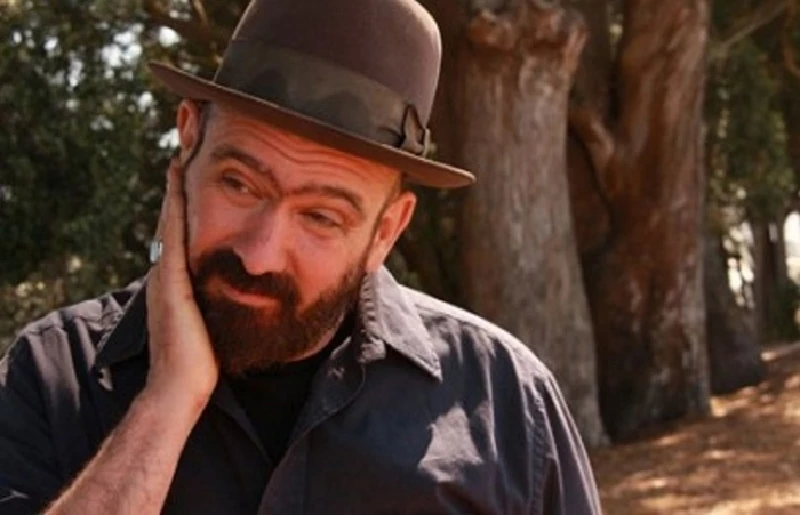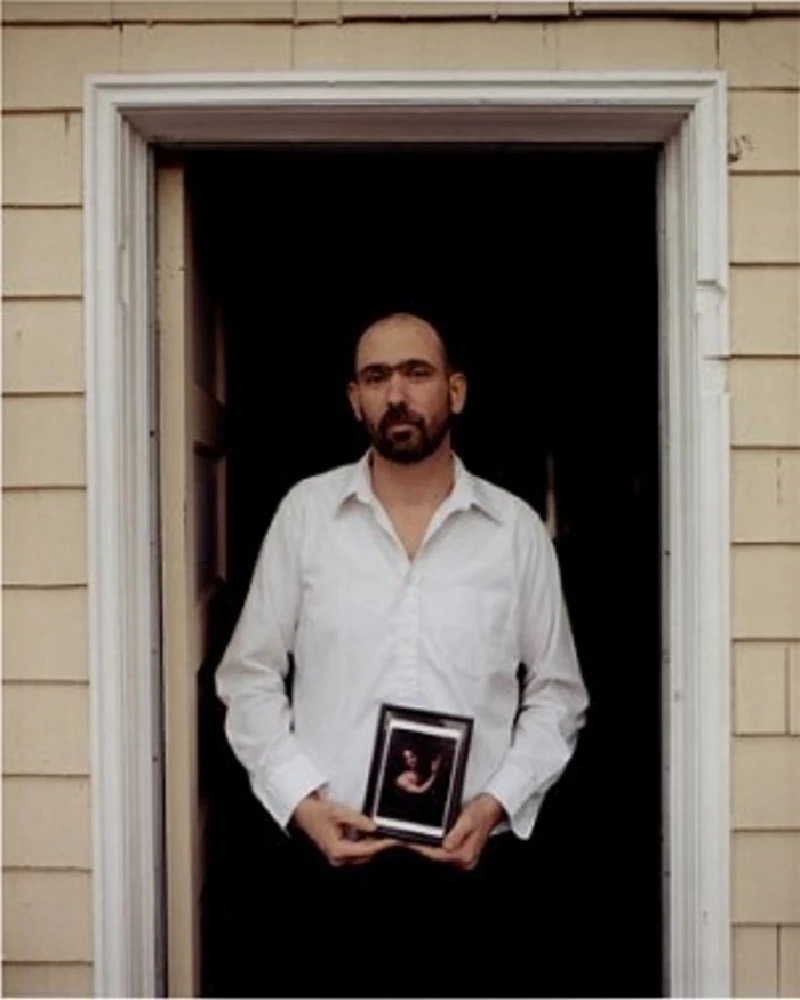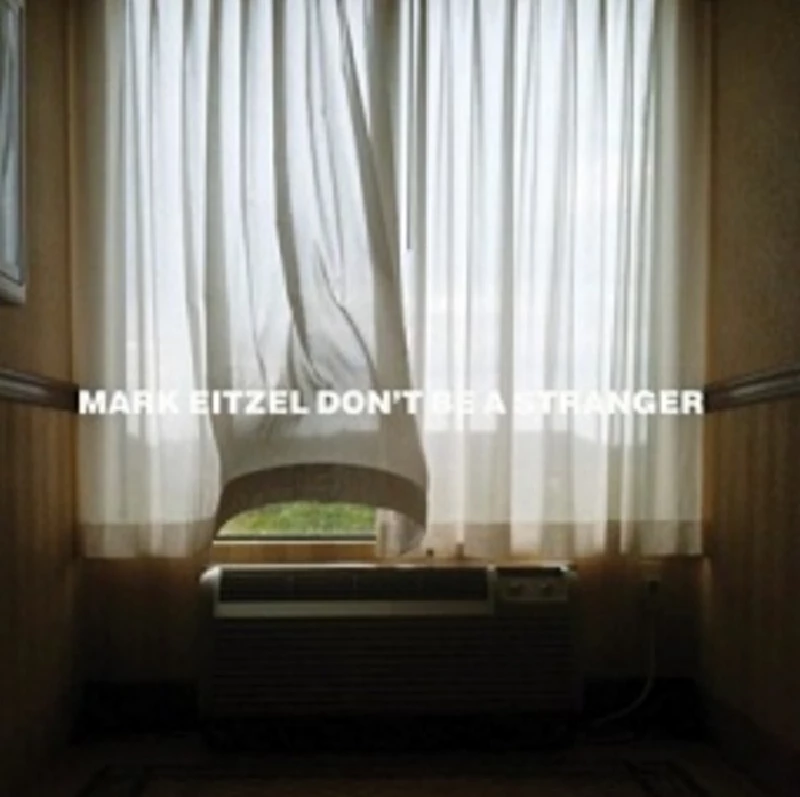Marc Ribot - Interview
by John Clarkson
published: 7 / 10 / 2012

intro
John Clarkson speaks to ex-American Music Club front man Mark Eitzel about his new solo album, ‘Don’t Be a Stranger’
Once described by one critic as composing “neon lit meditations on the tragic futility of human existence and the brief consolation of romantic love,” the American singer-songwriter Mark Eitzel has over the last thirty years with both his band the American Music Club and in his solo career developed a reputation for writing songs that are as melancholic as they are often mordantly funny. Between first forming in San Francisco in 1983 and breaking up in 1994, and then after reforming between 2004 and 2010, the American Music Club released nine albums including the critically acclaimed records, ‘Everclear’ (Alias Records, 1991), ‘Mercury’(Reprise/Virgin, 1993), ‘San Francisco’ (Reprise/Virgin, 1994) and ‘Love Songs For Patriots’ (Merge/Cooking Vinyl, 2004). Initially concurrently with the American Music Club, Eitzel has also had a lengthy solo career in which he has recorded over a dozen solo albums. His latest solo album, ‘Don’t Be a Stranger’, which has been released on Décor Records, was produced by Sheldon Golmberg, who has previously worked with Rickie Lee Jones and Ron Sexsmith. It is Eitzel’s first studio album to involve a producer and to be recorded in a professional studio rather than at home since 2001’s ‘The Invisible Man’. Work began on ‘Don’t Be a Stranger’, which was initially planned as an American Music Club album, in 2010, but the album was, however, put on hold after Eitzel suffered a heart attack last May. In a brief interview, Pennyblackmusic found Mark Eitzel to be on trademark witty form as he spoke about ‘Don’t Be a Stranger’ PB: A lot of the songs on ‘Don’t Be a Stranger’ reflect, like a lot of your music, on mortality and the unreliability of life. How many of those songs were written before your heart attack and how many of them afterwards? ME: All of them were written beforehand. It is too soon. I can’t really write on top of everything. Maybe ten years on, but not immediately. PB: ‘Break the Champagne’ and ‘Nowhere to Run’ were, however, written apparently directly before you recorded them. ME: ‘Break the Champagne’ was rewritten many times, and was begun way before we recorded it.‘Nowhere to Run’ was also started a long time beforehand. I have all these notebooks, and sometimes I go to these notebooks and say, “I can use this one,” and that was what happened with both those songs. They were largely written a long time before, but I finished them and made the decision to record them just before we ended up doing so. I do that quite a lot. I just finished a song which I started way back in the early 90s in Reprise label years with the American Music Club called ‘I Have Spent the Last Five Years Trying to Waste Half an Hour’. PB: This album was originally planned as an American Music Club album. The American Music Club, however, have broken up again. Why did you decide to break up again? ME: The only other original member of the band left is the guitarist Vudi. He is not interested in being in any project called the American Music Club, and honestly it is kind of odd being the two remaining farts that are the remaining members. The group actually split up nearly twenty years ago. Even though we tried to get it back together it wasn’t the same I think. People were, however, giving us money to do so. I have had it explained to me many times that if I release an American Music Club record I might like get fifty shekels and if I sell a Mark Eitzel record I might like maybe get five shekels. PB: This is your first solo release in some years, and it is also your first properly produced solo album since ‘The Invisible Man’ in 2001. Is it true that it was paid for by an enthusiastic fan who had won the lottery? ME: It is true. We have paid him back already though. PB: The album was produced by Sheldon Goldberg. Why did you decide to work with him and what do you think he brought to the recording? ME: Basically when you hire a producer they can record things properly. It is also so that they can provide a different of ears, but what Sheldon really brought was a complete let’s finish this, let’s do this perspective which I think was great. I am not an engineer. I can record things to the cows come home, but it is without the same level of sophistication. PB: The aim was to make an album with ‘Don’t Be a Stranger’ reminiscent of Neil Young’s ‘Harvest’ and Neil Drake’s ‘Five Leaves Left’. What was the appeal to you of those records? ME: They are so organic and beautiful sounding, and they are timeless records. They’re perfect records both of them. Even though I didn’t make those records I can still try to aim towards making something of their quality. PB: The veteran jazz musician Jimmy Scott was also an influence on this album as well. You have said in your blog that “all the songs that I do and everything that I do is to sound like this.” Do you feel that you have even partially achieved that with this album? ME: He is one of the best singers I have ever seen. I would never achieve that (Laughs). PB: You also wrote the music for the musical and songs for the 2010 musical. ‘Marine Parade’. The songwriting for this album is simpler, and you have adopted perhaps a more straightforward approach than you have in the past. How much of that is a reflection on this experience and making a musical? ME: That is a very good question, and I think a lot. When you are confined with having to make these poor actors sing your songs, you really have to tone it down and make it simple. It was a huge influence on the record. PB: You have often been your own harshest critic in the past and often very critical of your own work, but in other interviews you have been very positive about the songs on ‘Don’t Believe a Stranger’. Do you feel that they stand up especially well? ME: It is not up to me to say, but in my mind they do. I am not too happy with some of the recording choices. I think some of the vocals are too harsh, but overall I am pleased with it. PB: Thank you.
Picture Gallery:-


most viewed articles
current edition
Carl Ewens - David Bowie 1964 to 1982 On Track: Every Album, Every SongArmory Show - Interview with Richard Jobson
Colin Blunstone - Thalia Hall, Chicago, 16/7/2025
Bathers - Photoscapes 1
Visor Fest - Valencia, Spain, 26/9/2025...27/9/2025
Billie Eilish - O2 Arena, London, 10/7/2025
Robert Forster - Interview
Loft - Interview
John McKay - Interview
Editorial - July 2025
previous editions
Heavenly - P.U.N.K. Girl EPManic Street Preachers - (Gig of a Lifetime) Millennium Stadium, Cardiff, December 1999
Oasis - Oasis, Earl's Court, London, 1995
Beautiful South - Ten Songs That Made Me Love...
Trudie Myerscough-Harris - Interview
Pixies - Ten Songs That Made Me Love...
Simon Heavisides - Destiny Stopped Screaming: The Life and Times of Adrian Borland
Paul Clerehugh - Interview
Doris Brendel - Interview
Prolapse - Interview
most viewed reviews
current edition
Amy Macdonald - Is This What You've Been Waiting For?Sick Man of Europe - The Sick Man of Europe
Alice Cooper - The Revenge of Alice Cooper
Phew, Erika Kobayashi,, Dieter Moebius - Radium Girls
Davey Woodward - Mumbo in the Jumbo
Lucy Spraggan - Other Sides of the Moon
Blueboy - 2
Cynthia Erivo - I Forgive You
Philip Jeays - Victoria
Lapsley - I'm a Hurricane, I'm a Woman In Love
Pennyblackmusic Regular Contributors
Adrian Janes
Amanda J. Window
Andrew Twambley
Anthony Dhanendran
Benjamin Howarth
Cila Warncke
Daniel Cressey
Darren Aston
Dastardly
Dave Goodwin
Denzil Watson
Dominic B. Simpson
Eoghan Lyng
Fiona Hutchings
Harry Sherriff
Helen Tipping
Jamie Rowland
John Clarkson
Julie Cruickshank
Kimberly Bright
Lisa Torem
Maarten Schiethart